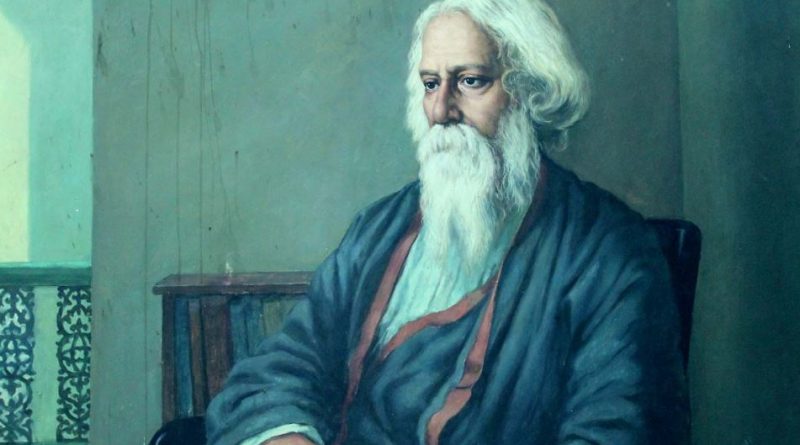Tagore and spirituality
From the ancient times to modern days, literature and religion in India continue to emerge in new revolutionary movements to alter the mind and soul of man. Amongst many writers who flourished with a broad vision of a new world during the Bengal Renaissance, Rabindranath Tagore (winner of 1913 Nobel prize in literature) is indisputably acknowledged as the father founder of modern literature in the Indian subcontinent. A profound believer of the Vedas, Puranas and Upanishads, and the Bhagavad Gita, Tagore advocated the essence of spirituality from the east that easily connects with the West. His spiritual vision is inspired by the ancient scriptures that manifests in our modern life today.
Carrying an infinite thirst for knowledge in all domains of public and private sectors, Tagore decrypted in his massive work of poetry the ultimate relation between God, man and nature. Not so fond of the superficiality of institutional religions, Tagore’s own vision of spirituality came from the perspective of an artist, a poet. Living in a deep, religious milieu where the Upanishads were recited on a daily basis, the values and core beliefs of such texts were reflected on Tagore’s work. In his book, Gitanjali, a vast body of immortal literary work teaches us the universe is a manifestation of God and there is no bridge between our world and God’s one. The dual relationship of polytheism and monotheism in Hinduism has been an area of great debate and interest ever since the concept was developed. For Tagore, the anthropomorphic polytheism leads to spiritual monotheism; in another words, the 30 million Gods and Goddesses who control different aspects of life and death, are ultimately controlled by the Supreme God.
As mentioned in the Upanishads, Tagore believed that the abandonment of material world and commodities open the gate for man to attain a higher spiritual growth. In order to attain Moksha (liberation from the circle of rebirth), one must follow strictly on working, realizing and meditating on the Supreme. Similar in thoughts with Buddhist philosophy, Tagore had a life-long admiration for Gautama Buddha who developed the concept of Nirvana: in order to attain the highest happiness, one must leave the material world behind. To summarize Tagore’s conception of man’s spiritual path which merges with God, he states in his philosophical essay Sadhana that man’s only mission in life is the realization of Self to its fullest potential, which is the ultimate union with God.
Most of Tagore’s religious inspirations came from nature. It was nature that gave his poetry an ethereal beauty in which the ancient School of Philosophy and Religion were prevailed. Being a supporter of the revolutionary religious movement Brahmo Somaj that emerged in 1928, Tagore’s continuous effort to create a new world founded on diversity and religious tolerance is depicted in all his writings. If Vishnu is the Supreme Being in the Religion of Man, Rabindranath Tagore is the Supreme One in modern Bengali literature.




